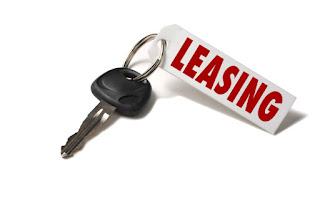Used vehicle prices have been very strong for the past eighteen months as I noted here. Manufacturers have used the shortage of late model used cars to their advantage in offering lease payments on relatively short leases (less than 30 months) knowing that the vehicles will come back off lease into a strong used car market. So the residual values (what the car is worth at the end of the lease) are higher which means a lower lease payments.
Here are some factors to consider as you make your next vehicle decision:
Leasing Advantages
- Lower Monthly Payments - because you only pay for the portion of the car or truck that you actually use, your monthly lease payments can be up to 60% lower than for a purchase loan for the same car and same term. You get more car for your money.
- No (or low) Down Payment - when the lease begins, you'll just have to pay the first month's payment, title, taxes, registration, banking fees, and a security deposit. Some promotional lease deals require a down payment to get to the advertised payment. But because car leases require little or no down payment, your cash is freed up for other things.
- Warranty throughout Ownership - because the lease term is shorter than a purchase term, your vehicle is likely covered during the entire time you drive it.
- New Vehicle More Often - drive a new vehicle every two to four years, depending on the term length of your lease.
- Lower Tax Bite - you don't pay sales tax on the entire value of a leased vehicle as you would if you purchased. You're only taxed on the portion of the value that you use during your lease.
- No Used-Car Hassles - the headaches of negotiating a trade value or selling a used car are eliminated. When your lease ends, you simply turn it back to the leasing company and walk away.
- Gap Coverage Included - Most car leases automatically include free "gap" protection in case your vehicle is totaled in an accident or stolen, which pays off your vehicle even if insurance doesn't cover the full loss. Loans do not generally come with automatic gap protection.
- Option to Buy - you have the first option to purchase your leased vehicle at the end of the lease at a price that is determined at the time you lease the vehicle.
- Reduce the Risk of Car Ownership - South Dakota has a damage disclosure law which requires that you disclose any damage to your vehicle exceeding $5,000 at the time you sell it. This typically diminished the value of the car significantly. Some states consider SD Damage Disclosure a "Salvage" brand on the title when the vehicle is titled in their state. If you are leasing the vehicle, though you are responsible for carrying insurance and repairing the vehicle, you are not liable for any diminution of value.
Leasing Disadvantages
- Early Termination Cost - if you must terminate your lease before the end of your contract, the cost is usually very high, much higher than might be expected. However, cost can be minimized by making the right termination choices. But because the leases are so short (under 30 months). Most people end their lease on schedule and do not end early, which avoids all early termination costs.
- Little or No Ownership Equity - because monthly lease payments are so low, you typically do not build ownership or trade-in value in your leased vehicle. It is possible, however, that the market value of a vehicle at lease-end is higher than the purchase option price specified in the lease contract — which means you may have some equity trade value. You could end up with a few thousand dollars of unexpected equity.
- Excessive Mileage Charges - here in the Midwest, we tend to drive more miles annually than people do in other parts of the country. If you exceed the mileage allowance in your lease contract, you will be charged for the extra miles at a specified per-mile rate, usually a reasonable $0.20 per mile. A large mileage excess could result in a hefty charge, even at a reasonable per-mile rate. You can reduce your exposure and build the excess miles into the payment if you "buy" the extra miles you expect to drive at the time of lease signing. You avoid the higher end-of-lease charge this way. But be assured on one thing - you pay for those miles whether you lease or buy. The lease can offer a tidier way to incur those charges.
- Excessive Wear-and-Tear Charges - If you return a leased vehicle at lease-end with excessive dents, scratches, or unrepaired accident damage, you will be charged — because those damages reduce the vehicle's value. Most lease companies clearly specify what is considered "excessive" so that you'll know if you should get it repaired before returning your vehicle. Get the repairs done yourself before you return the vehicle and avoid being charged.
- If you have the option to buy the car at the end of the lease (as is often the case), you'll have to make that decision as soon as the lease ends, whereas if you owned the car you could decide exactly when to sell it.
Leasing isn't the right choice for everyone, but if you can take care of a vehicle properly, and can adhere to the mileage restrictions, it may be the best choice for you!
12/4/2012 UPDATE: Five myths about leasing a car
3/7/2013 UPDATE: Kiplinger: Smart reasons to lease your next car
12/4/2012 UPDATE: Five myths about leasing a car
3/7/2013 UPDATE: Kiplinger: Smart reasons to lease your next car





